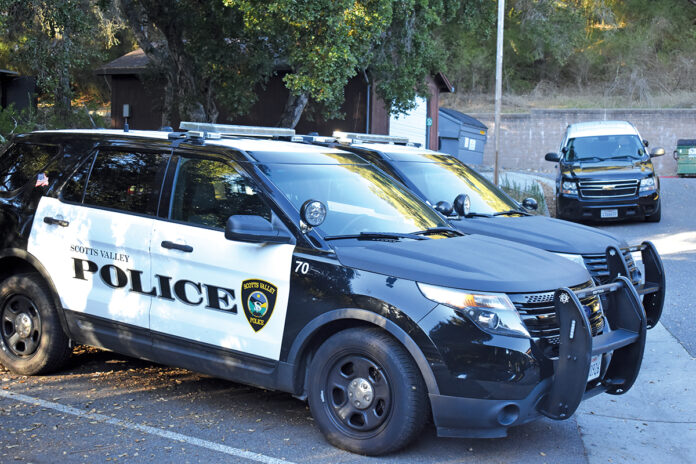CALIFORNIA—Every year, state lawmakers send hundreds of bills to the governor in hopes they will be signed into law.
Many do not make the cut, and fall victim to the state’s lengthy legislative process. But last year 770 bills became law, and many became effective on Jan. 1.
Here are a few new laws that will variously affect the lives of Californians.
Lawmakers Pen Animal Welfare Law
Approved by voters in 2018 by a 63% majority, this law requires farmers to provide space for animals such as pigs, calves and chickens to be able to turn around and lie down—around 24 square feet of space.
The law further prohibits the sale of animals that are not afforded that right.
Those that fail to comply face fines of up to $1,000 and up to 180 days in jail.
Supporters, including the Humane Society of the United States and the American Society for the Prevention of Cruelty to Animals, said the rules bring a measure of compassion to an industry that confines animals to small cages for the entirety of their lives.
But detractors, which includes the National Pork Producers and American Farm Bureau Federation, say the rules will upend the industry.
According to National Hog Farmer—that industry’s news source—nearly all pork currently produced in the United States fails to meet California’s standards. Californians account for 13% of the nation’s pork consumption and import 99.87% of pork consumed.
That organization estimates that meeting the state’s new standards will cost billions, which will almost certainly be passed along to consumers, who may very well see fewer pork products on grocery store shelves.
Two lawsuits have failed to stop the law so far, but in November a group that includes grocery stores, restaurants and industry groups filed a lawsuit seeking a 28-month delay.
Raising the Bar
California has become the first state to mandate a $15 per hour minimum wage for companies with more than 26 employees, and $14 for those with fewer. That is part of Senate Bill 3, which became law in 2018.
Washington, D.C., along with several cities, have already reached that milestone.
Hang Up and Drive
Under Assembly Bill 47, anyone caught using a cell phone while driving for the second time in 36 months will see a point added to their driver’s record, which could boost insurance costs.
Giddyap
Young mule-riders take heed: Assembly Bill 974 requires you—and anyone under 18 and similarly riding a horse or donkey on a paved highway—to wear a helmet while doing so. Additionally, nighttime mule riding requires a lamp and/or reflective gear.
But those who are riding said mounts in a parade or festival—or crossing a paved highway from an unpaved highway—need not fear, as they are exempt from these requirements.
What Could Go Wrong?
With Senate Bill 389, Senator Bill Dodd has extended our ability to purchase takeout alcoholic drinks at restaurants through 2026.
Police Reform
There are several new laws that take aim at police officer procedures and standards.
Assembly Bill 48 prohibits police from using rubber bullets and tear gas to disperse crowds at protests. Assembly Bill 490 prohibits police from using restraint and transportation methods that carry “a substantial risk of positional asphyxia” such as carotid restraints and chokeholds. And Assembly Bill 89 raises the minimum age for someone to become a police officer from 18 to 21.
On The Road
Under Assembly Bill 798, any vehicle owned or operated by a federally recognized Indian tribe is considered an authorized emergency vehicle when responding to an emergency, fire, ambulance or lifesaving calls.
Senate Bill 287 allows Class C Drivers to pull trailers weighing between 10,001 pounds and 15,000 pounds—or gross vehicle weight with a fifth-wheel and kingpin or bed mounted gooseneck connection—as long as the trailer is used exclusively for recreational purposes.
Finders keepers
Senate Bill 395 is a pilot program that eventually will allow people to collect roadkill deer, elk, pronghorn antelope and wild pig for consumption. This, however, requires first reporting it and somehow securing a permit, a process that has not yet been set up. So for now, leave those animals where they lie.
Reducing Waste
Assembly Bill 1276 prohibits restaurants from passing out single-use items such as sporks and condiments unless a customer asks for them.
Bathroom Breaks
Under Assembly Bill 701, large warehouse retailers such as Amazon cannot fire workers who miss quotas because of rest periods and bathroom breaks.
Community College
Assembly Bills 928 and 1111 make it easier for community college students to transfer to California State University and University of California institutions by streamlining courses and admission requirements.
Vote by Mail
Assembly Bill 37 sets a permanent requirement for every voter in California to receive a vote-by-mail ballot.
Hate Crimes
Assembly Bill 600 adds immigration status under the definition of nationality so that crimes that target people based on their nationality can now be considered hate crimes.










